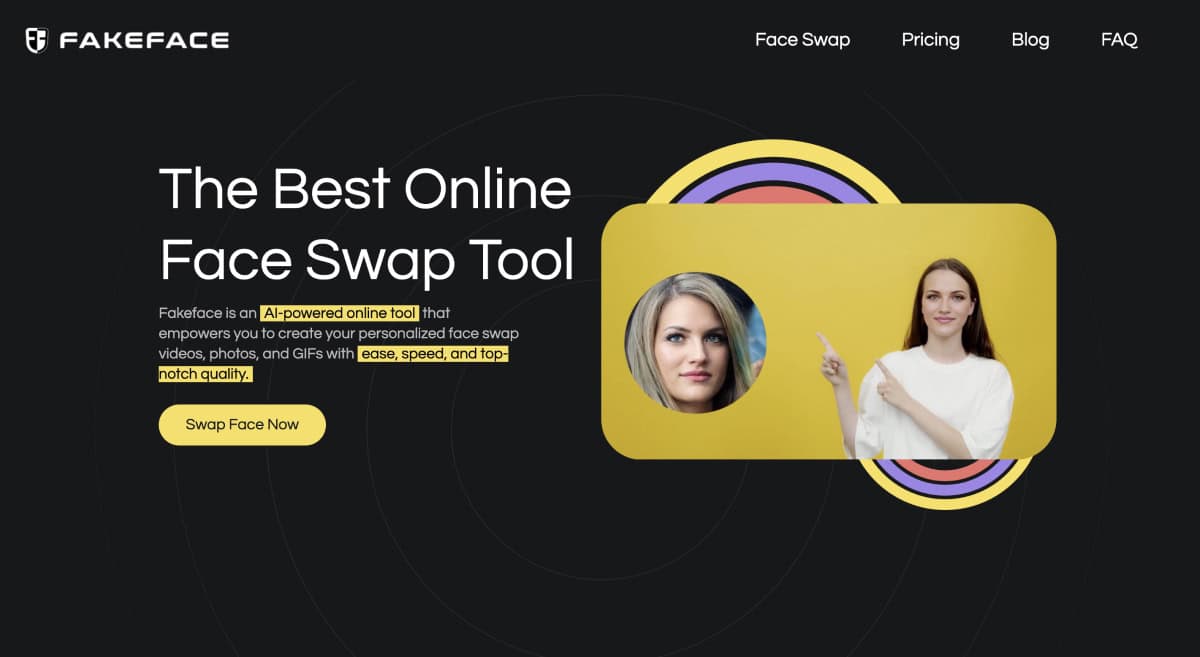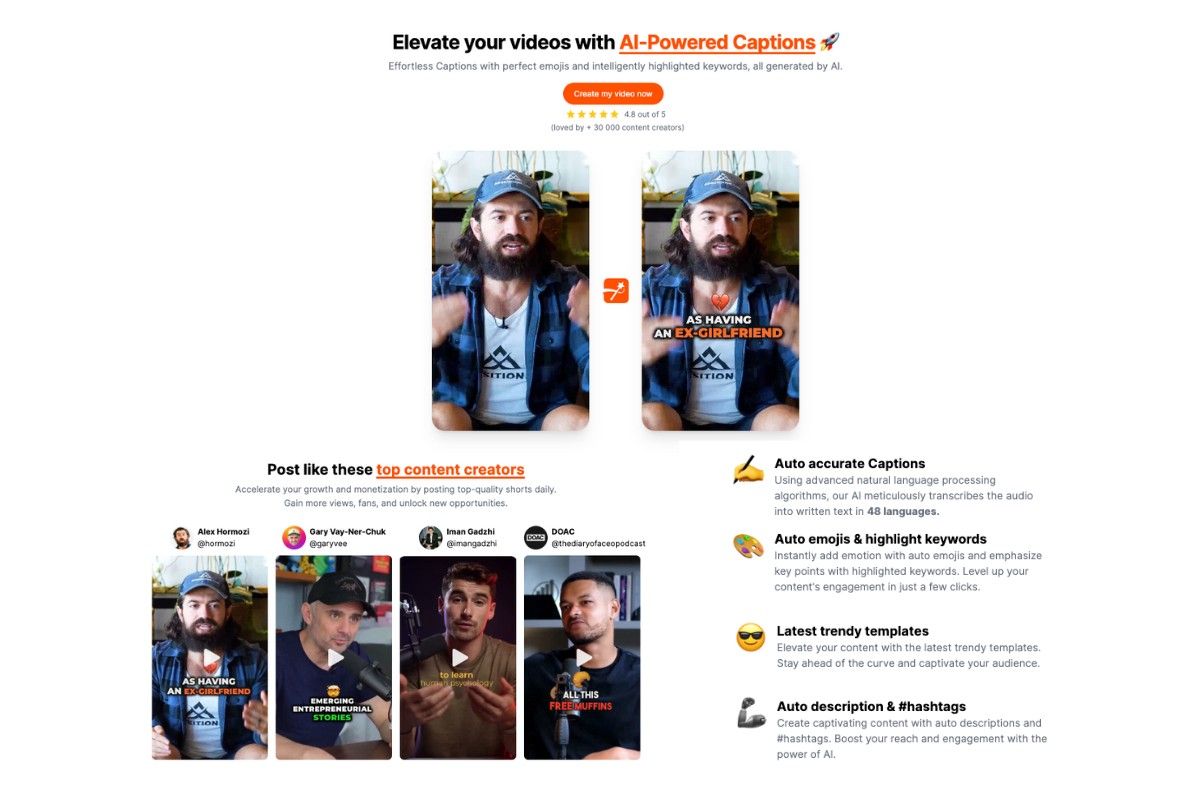
Fakeface
Fakeface is an AI-powered online tool that empowers you to create your personalized face swap videos, photos, and GIFs with ease, speed, and top-notch quality.
More Details About Fakeface
Understanding Fakeface: What It Is and Why It Matters
Fakeface refers to ultra-realistic, AI-generated images of human faces that do not belong to any real person. Using powerful algorithms such as Generative Adversarial Networks (GANs), Fakefaces are produced by neural networks trained on vast datasets of human facial images. These synthetically created faces can be indistinguishable from real photographs to the naked eye, raising serious concerns about digital identity, online manipulation, and data integrity.
The sophistication of this technology poses a growing threat to privacy, trust, and authenticity online. From social media profiles and fake online reviews to identity fraud and disinformation campaigns, the applications of Fakeface technology are both vast and deeply troubling.
How Fakeface Technology Works
Fakefaces are primarily generated through GANs (Generative Adversarial Networks). This involves two AI systems — a generator and a discriminator — competing against each other. The generator creates an image while the discriminator evaluates its authenticity. Over time, this adversarial process refines the generator’s output until the generated face becomes indistinguishable from a real human face.
Key features of Fakeface creation:
- High-resolution outputs (typically 1024x1024 pixels or higher)
- No duplicate patterns across images
- Dynamic and diverse facial features
- Naturalistic lighting and background blending
These features make Fakefaces ideal for deceptive practices, as they do not carry digital fingerprints or metadata associated with real photographs.
Common Uses of Fakeface Images
1. Fake Social Media Profiles
Scammers and malicious actors use AI-generated profile pictures to create realistic but fictitious personas. These accounts are often used to gather information, spread misinformation, or engage in phishing scams.
2. Fake Product Reviews and Testimonials
Online marketplaces and businesses may use Fakefaces to fabricate customer reviews, giving the illusion of widespread satisfaction or endorsement when none exists. These fake testimonials are persuasive, as they are paired with lifelike, smiling portraits of non-existent individuals.
3. Political and Propaganda Campaigns
Fakefaces can be weaponized to influence public opinion, disguise foreign interference, or create seemingly grassroots support for controversial policies. Their use in bot-driven content dissemination can make fringe opinions appear mainstream.
4. Identity Theft and Deepfake Synergy
By combining Fakeface images with stolen data, cybercriminals can create synthetic identities used in fraud, money laundering, and unauthorized access to secure systems. When merged with deepfake video and voice technologies, these images become even more potent.
The Dangers of Fakeface Technology
Loss of Trust
The proliferation of Fakeface images leads to erosion of trust in visual media. Users are no longer confident that what they see is real, which damages the credibility of journalism, education, and professional networking.
Security Threats
Fakefaces contribute to security vulnerabilities. Fraudsters use these images to infiltrate organizations, impersonate employees, or create fraudulent documents. As these synthetic faces are not tied to any real-world identity, they are difficult to trace.
Psychological and Social Manipulation
The deployment of Fakefaces in psychological warfare or social engineering exploits human emotions. Fake images showing people in distress, joy, or authority roles can manipulate audience reactions and decision-making.
Ethical and Legal Concerns
There is little regulation surrounding the use of Fakeface technology. The line between artificial creation and human likeness rights remains blurry, raising ethical questions about ownership, consent, and accountability.
How to Detect Fakeface Images
Although Fakeface images are incredibly convincing, certain signs can help detect them:
- Asymmetrical facial features: Eyes or ears might be misaligned.
- Irregular backgrounds: Unnatural blending or distorted textures.
- Inconsistent lighting: Shadows may fall unnaturally across the face.
- Glitch artifacts: Jewelry, eyeglasses, or hair may appear distorted or blurry.
- Lack of web footprint: Reverse image search shows no results, indicating the face doesn’t exist online.
AI detection tools are also emerging to assist with identifying these images, but they are in a constant arms race with generative models.
Protecting Yourself and Your Brand from Fakeface Exploitation
1. Verify Online Profiles
Cross-check profile pictures using reverse image search tools. If no source can be found, and the account has suspicious activity, treat it with caution.
2. Implement Facial Recognition and Biometric Verification
Businesses should adopt multi-layered identity verification processes that go beyond photos. Incorporating real-time video interviews or biometric checks can significantly reduce the risk of Fakeface infiltration.
3. Educate Your Team and Community
Train employees and digital users to recognize signs of AI-manipulated content. Awareness is the first line of defense against digital deception.
4. Monitor and Report Suspicious Activity
Use automated monitoring tools to scan your digital ecosystem for unauthorized use of synthetic media. Flagging and reporting fake profiles can curb their spread.
The Future of Fakeface: What's Next?
As AI and machine learning technologies continue to evolve, the realism and accessibility of Fakeface generation will increase. New models can produce video-ready avatars, capable of expressing emotion, speaking, and interacting in real time. This could soon lead to AI influencers and digital clones acting autonomously across platforms.
Governments, tech companies, and researchers must collaborate to build regulatory frameworks, ethical guidelines, and technological safeguards that balance innovation with responsibility.
If you liked Fakeface, you might also like

2short.ai
2short.ai effortlessly converts YouTube videos into engaging shorts featuring AI-generated captions, maximizing reach and growing your channel, while the algorithm promotes shorts and AI handles the editing hassle, all for free.

Rask
Rask is an AI-powered platform that makes video localization easy. You can add voiceovers, subtitles, and dubbing in multiple languages with accurate translations, saving time and effort.

Klap
Klap transforms your YouTube content into digestible short videos for TikToks, Reels, and more using AI. With a unique focus on curation, framing, captions, and style, it ensures rapid, ready-to-publish video generation.

ClipBuddy
Transform lengthy videos into must-watch moments with features like auto curation, dynamic captions, resizing, and seamless transitions.

Magic Hour
Designed for video creators, Magic Hour's user-friendly console is simple but powerful. With Video-to-Video, Animation, Face Swap, and Text-to-Video, your creativity and storytelling will have your audience asking for more.

Submagic
Add life to your videos with accurate transcriptions in 48 languages, trendy templates, enhanced captions with emojis and keyword highlights—all at the touch of a button. It's like waving a magic wand for global content creation
Contact Me ☎️
Discuss A Project Or Just Want To Say Hi?
My Inbox Is Open For All.
Connect with me on Social Media


